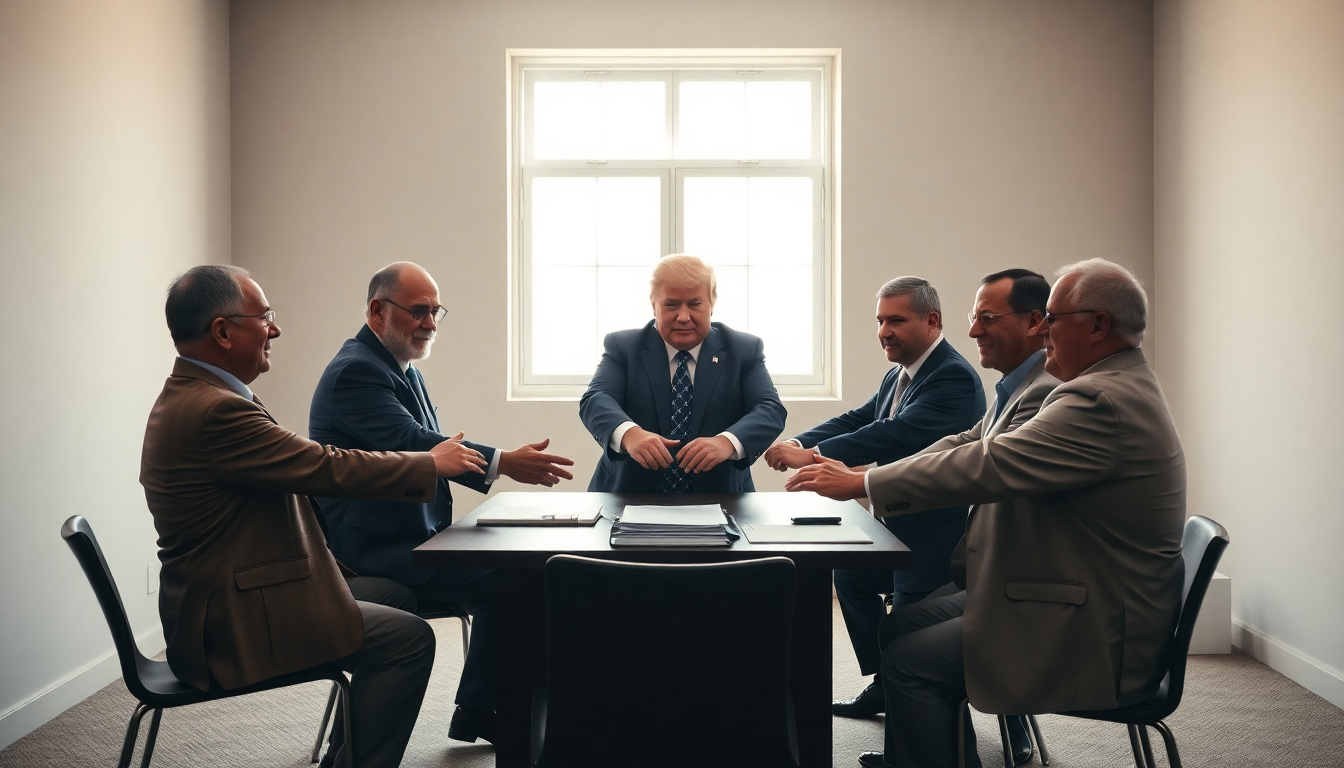Table of Contents
In a striking display of solidarity, over 600 former Israeli security leaders have reached out to U.S. President Donald Trump, urging him to put an end to the ongoing war in Gaza. This heartfelt appeal comes as global outrage intensifies over the humanitarian crisis unfolding in the region, where countless Palestinians are enduring starvation and violence.
The letter not only highlights the Israeli military’s past achievements but also underscores the urgent need for negotiations aimed at securing the release of Israeli captives held by Hamas.
The Humanitarian Crisis in Gaza
The situation in Gaza has escalated to alarming proportions, with reports revealing that more than 60,800 Palestinians have tragically lost their lives since the conflict flared up on October 7, 2023.
The devastation is staggering, reducing the enclave to ruins and pushing many towards the brink of famine. The humanitarian implications of this violence are profound; over two million Palestinians are now grappling with dire conditions, facing severe limitations in food and medical access.
As the Israeli military carries out its operations, it’s crucial to recognize that while some military goals may have been achieved, the toll on civilian lives has been catastrophic. The Commanders for Israel’s Security (CIS), a group composed of former generals and high-ranking officials, have stressed that the military’s success in dismantling Hamas’ infrastructure cannot justify the immense human suffering that’s being inflicted.
Their message is crystal clear: the moment for diplomatic resolution is now.
Pressure on Leadership for a Diplomatic Solution
This letter, which boasts endorsements from notable figures like former Mossad chief Tamir Pardo and former Shin Bet chief Ami Ayalon, emphasizes the critical need to pressure Prime Minister Benjamin Netanyahu.
The signatories argue that the ultimate military goal—securing the release of Israeli captives—can only be achieved through negotiations, not force. They see this as a pivotal moment for President Trump to step in and help shift the course towards peace.
In their correspondence, these former leaders remind the current administration of prior successes in mediating conflicts, suggesting that a similar strategy could produce concrete results in Gaza. This appeal goes beyond a simple call for immediate action; it’s a broader demand for a fundamental change in how international powers address conflicts with extensive humanitarian ramifications.
International Response and Future Prospects
The international community is closely watching the situation, with various organizations condemning the violence and advocating for a ceasefire. The recent action by the International Criminal Court against Israeli leadership for alleged war crimes adds another layer of complexity. As accusations of genocide emerge, the call for accountability and a strategic policy shift becomes increasingly urgent.
Hamas has expressed a willingness to allow international aid to reach the captives, which could serve as a potential stepping stone towards broader humanitarian efforts. However, Netanyahu’s claims of systematic starvation affecting Israeli hostages raise significant concerns about the treatment of all individuals caught in this conflict.
As the world observes and waits, one pressing question remains: will these calls for peace resonate with those in power? Could this moment spark a renewed commitment to humanitarian principles and diplomatic solutions? The answers could shape the future of countless lives in Gaza and beyond.





